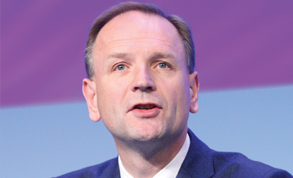NHS in England sets out pre-virus financial position
The finance report tabled at the NHS England and NHS Improvement board meeting in common on 26 March said the year-to-date plan for the acute sector was an aggregate deficit of almost £768m. However, at month 10, the actual figure was a deficit of £1.458bn.
Ambulance, mental health and specialist trusts also reported an adverse variance against plan. Ambulance trusts, for example, planned for an aggregate surplus of £11.7m, but recorded an actual surplus of £6.6m. Mental health trusts planned a £78m surplus, but reported a £9m surplus. Similarly, specialist trusts planned to be £22.3m in the black, but said their surplus was £8.7m at month 10.
Only community trusts had a greater combined surplus than planned – £26m against a planned £20.6m.
All figures include the impact of the Provider Sustainability Fund (PSF), Financial Recovery Fund (FRF) and Marginal Rate Emergency Tariff (MRET). Once technical adjustments, including uncommitted PSF, FRF and MRET, are factored in, the year-to-date provider deficit was just over £1bn – £442m more than plan.
NHS chief executive Simon Stevens (pictured) told the board meeting: ‘A lot of progress has been made over the course of the last year. The number of trusts reporting a worse financial position has halved compared with the same point last year.’
The month 10 figures were taken before the Budget – where the NHS was promised all the resources it needs to tackle the threat from the coronavirus. NHS England and NHS Improvement have also unveiled a mechanism that will fund providers for additional Covid-19 costs incurred in 2019/20.
A number of factors affected the sector’s financial position, particularly pay, which was £849m over plan. The bulk of this adverse variance was due to overspends on agency staff (almost £224m over plan) and pay excluding agency (£625m over). Non-pay spending was more than £700m over plan. However, providers’ total income was £1bn higher than plan (excluding PSF, FRF and MRET).
Clinical commissioning groups overspent by £386m against plan at month 10. However, this was offset by underspending in direct commissioning and central running and programme costs. Overall, commissioners had a year-to-date overspend of £453m, which is almost £147m more than plan.
The CCG figures include payments from the Commissioning Sustainability Fund.
Against the capital budget, the NHS had an underspend of more than £807m – this included a £2m overspend by commissioners and an £810m underspend in providers. The paper said that at month 10 the NHS spent £2.9bn on capital, compared with £2.7bn at the same point in 2018/19.
Related content
We are excited to bring you a fun packed Eastern Branch Conference in 2025 over three days.
This event is for those that will benefit from an overview of costing in the NHS or those new to costing and will cover why we cost and the processes.